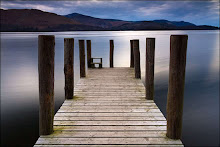NaturalNews-- It's hurricane season in the Atlantic, and that means Mother Nature could be whipping up fierce storms and sending them charging into the Gulf Coast any day now. In a normal hurricane season, that's bad enough all by itself... remember Katrina? But now there's something even more worrisome in the recipe: There's oil in the water.
So what happens when a Katrina-class hurricane comes along and picks up a few million gallons of oil, then drops that volatile liquid on a major U.S. city like Galveston or New Orleans?
Now, before we pursue this line of thinking any further, let's dismiss the skeptics out there who think oil can't drop from the sky because oil doesn't evaporate. Actually, if you look at the history of hurricanes and storms, you'll find thousands of accounts of lots of things that don't evaporate nonetheless falling out of the sky. The phrase "raining cats and dogs" it's entirely metaphor, you know: There are documented accounts of all sorts of things raining down from the sky: Fish, frogs, large balls of ice, and so on.
If rain storms can pick up fish out of the ocean, then drop them on land, then they certainly have the capacity to pick up oil, too.
Besides, as any chemist will tell you, the various petrochemicals found in crude oil evaporate even without a storm picking them up! Oil, in other words, does evaporate into the air. Or, more accurately, some of the lighter chemicals in crude oil evaporate even at temperatures of around 100 degrees (F). Those are Gulf Coast temperatures.
These chemicals burn
Now, these lighter chemicals that more easily evaporate also happen to have lower flash points, meaning they catch on fire more easily and at lower temperatures than other elements in the oil. The flash point for gasoline, for example, is much lower than diesel fuel. That's because gasoline is "more flammable" and is a lighter fuel than diesel.
The EPA classifies oils into Classes A - D. Class A is the lightest kind of oil, which the EPA describes as follows (http://www.epa.gov/oem/content/lear...)
"These oils are highly fluid, often clear, spread rapidly on solid or water surfaces, have a strong odor, a high evaporation rate, and are usually flammable. They penetrate porous surfaces such as dirt and sand, and may be persistent in such a matrix."
That same EPA document makes it quite clear that the more volatile oils can evaporate from crude oil, rendering the remaining oil heavier and more "tar-like."
And we already know these oils can catch on fire. That's the whole point of tapping crude oil, of course: To pump it into engines then catch it on fire in order to turn the energy of that mini-explosion into force (to drive the eight pistons in your gas-guzzling SUV, for example).
How the fire happens
So let's say the oil blowout continues, and the Gulf of Mexico is carrying millions of gallons of crude oil as a massive hurricane approaches. It's a hot July day in the Gulf of Mexico, with temperatures soaring towards 110 degrees, accelerating the evaporation of volatile oils which get mixed in with hurricane-force winds.
The hurricane makes landfall in New Orleans, let's say, dumping potentially hundreds of thousands of gallons of what is essentially "volatile fuel" on the city of New Orleans. Now, at first it's just a wet, slippery toxic mess that kills trees and grass. But what happens after the storm when the sun dries out the city?
All the dead trees killed by the oil turn into kindling. The sun evaporates off the rain water, leaving behind fuel. A few days of sun baking and you have a city doused in fuel, ready to burst into flames. It's every fireman's worst nightmare. The whole city is essentially turned into a giant match.
Now, sure, the more volatile fuels might evaporate, but as they do, they'd fill the city with explosive fumes. One spark, one fire, one lightning strike and your whole city literally goes up in flames. The BP oil spill, in other words, provides the fuel that could turn an ordinary hurricane into Mother Nature's arson attack on an entire city.
Like a nuclear bomb
This would not be an ordinary city on fire, either: It would be a city doused with volatile fuels that soaked it to the core. The sewers would explode like massive terrorist bombs, ripping to shred any underground infrastructure (fiber optics, water delivery, electrical infrastructure, etc.). The pavement itself would be on fire, as would parks, grasslands and forests. The city would burn from top to bottom, and there would be no point even trying to put out the flames. All we could do is evacuate and watch it all burn to the ground.
And in the aftermath, you'd still have oil covering the beaches, oil in the ocean, and the threat of more firestorms yet to come. It could be just the first of many such incidents striking the Gulf Coast.
Think this couldn't happen? Sure, and BP said the oil was a "tiny" little leak that didn't matter, either. They said the oil rigs would never explode. They said they would cap the blowout. They said they would protect the shores. And all along the problem just got worse and worse until even the press noticed that these corporate criminals just couldn't stop lying.
Now, BP is at least $20 billion in the hole in an effort to compensate some of the Gulf Coast businesses for the damage they've caused. But how will they compensate people if an entire city burns to the ground?
The answer? They won't. That would be the end of BP. Immediately bankruptcy. B.P. = "Bankruptcy Protection," after all.
No more payments go out to anyone. BP goes belly up just like all the fish being murdered by CorExit dispersant chemicals in the Gulf right now. The company goes down in flames just like New Orleans (or some other major city on the coast).
Of course, the scenario I'm describing here is theoretical, and I hope it's a worst-case scenario, too. But it is possible. Catastrophe is what happens at the intersection of poor planning and bad luck. BP has given us poor planning, and now Mother Nature may be about to deliver a heavy-handed dose of bad luck in the form of a seasonal hurricane that takes oil from the Gulf and dumps it on land.
We can only hope that these two elements do not collide on our shores. For if they do, we may witness loss on a scale our world hasn't seen since the dropping of atomic weapons on civilian populations in World War II. If a hurricane drops oil on New Orleans (or any other Gulf Coast city) and it goes up in flames a few days later, the aftermath will, indeed, resemble the effects of a nuclear bomb explosion.
You probably don't want to be anywhere near that. Needless to say, if it starts raining oil in your neighborhood, that might be a good time to grab whatever you value and get outta Dodge.
Subscribe to:
Post Comments (Atom)













No comments:
Post a Comment